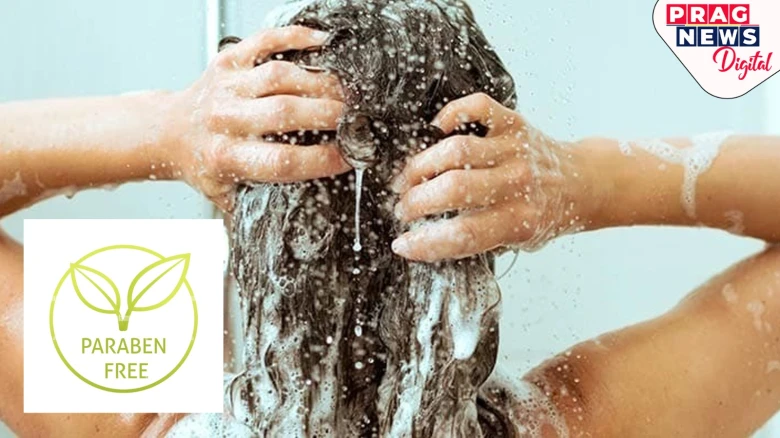This shift has paved the way for the emergence of sulphate and paraben-free shampoos in the beauty and hair care industry...
Digital Desk: In recent times, there has been a real shift in consumer preferences, particularly in the realm of skincare and haircare. The spotlight is now on steering clear of synthetic products laden with chemicals and toxins. This shift has paved the way for the emergence of sulphate and paraben-free shampoos in the beauty and hair care industry. Esteemed by experts for their safety and gentleness, these products boast an array of benefits that have garnered the attention of beauty enthusiasts worldwide.
Traditionally recognized as potent cleaning agents, sulphates belong to the anionic surfactants class of cleansers celebrated for their deep-cleansing properties. Found in the majority of shampoos, sulphates create a rich lather, effectively removing oil and dirt from the hair. However, the aggressive nature of sulphates may lead to the stripping of natural moisture oils from the hair and scalp, resulting in dry and brittle hair. Individuals with sensitive scalps may also experience irritation, redness, and dryness when exposed to sulphates.
Our scalp naturally produces oils that nourish hair follicles, maintaining their health. Unfortunately, shampoos containing sulphates and parabens can strip these oils away, compelling hair follicles to work harder to compensate for lost nutrients, resulting in greasy hair. The solution lies in sulphate-free shampoos, which not only include moisturizing agents but also contribute to shinier hair. Paired with a conditioner, these shampoos add volume and shine while being gentle on the scalp, reducing inflammation and potential irritation.
Sulphate-free shampoos offer additional advantages, including being eye-friendly. Unlike their sulphate-laden counterparts, they eliminate the unpleasant burning sensation if accidentally introduced into the eyes. Made primarily from plant derivatives, these shampoos also champion environmental friendliness, making them a conscientious choice for eco-conscious consumers. Particularly beneficial for low porosity hair, which struggles to retain moisture, sulphate-free shampoos provide essential hydration and help manage frizz while minimizing exposure to potentially toxic compounds.
For those with dyed hair, sulphate shampoos are best avoided, as their harsh cleansing properties can strip away color. Individuals with dry or frizzy hair are also advised to opt for sulphate-free shampoos to maintain natural scalp and hair oils, ensuring optimal moisture retention. While sulphates effectively eliminate oil and dirt, individuals with sensitive skin or scalp problems should exercise caution, steering clear of sulphate shampoos to prevent scalp irritation and hair damage.
Choosing the right shampoo begins with identifying your hair and scalp types. A tight and dry scalp with visible flakes calls for a moisturizing shampoo. Conversely, an oily scalp suggests the need for a mild cleansing shampoo, which can keep the scalp oil-free for longer periods. Colored hair requires special attention, with a damage-control shampoo that restores and repairs while preserving color. Tailoring your shampoo choice to your specific needs ensures a healthier, more vibrant mane.
The growing popularity of sulphate and paraben-free shampoos signifies a paradigm shift towards safer, more conscientious hair care practices. As consumers become more discerning, the beauty industry is adapting to meet the demand for products that prioritize health, sustainability, and efficacy. The era of sulphate-free shampoos has dawned, offering a refreshing and nurturing approach to hair care that resonates with those seeking a harmonious balance between beauty and well-being.

Leave A Comment